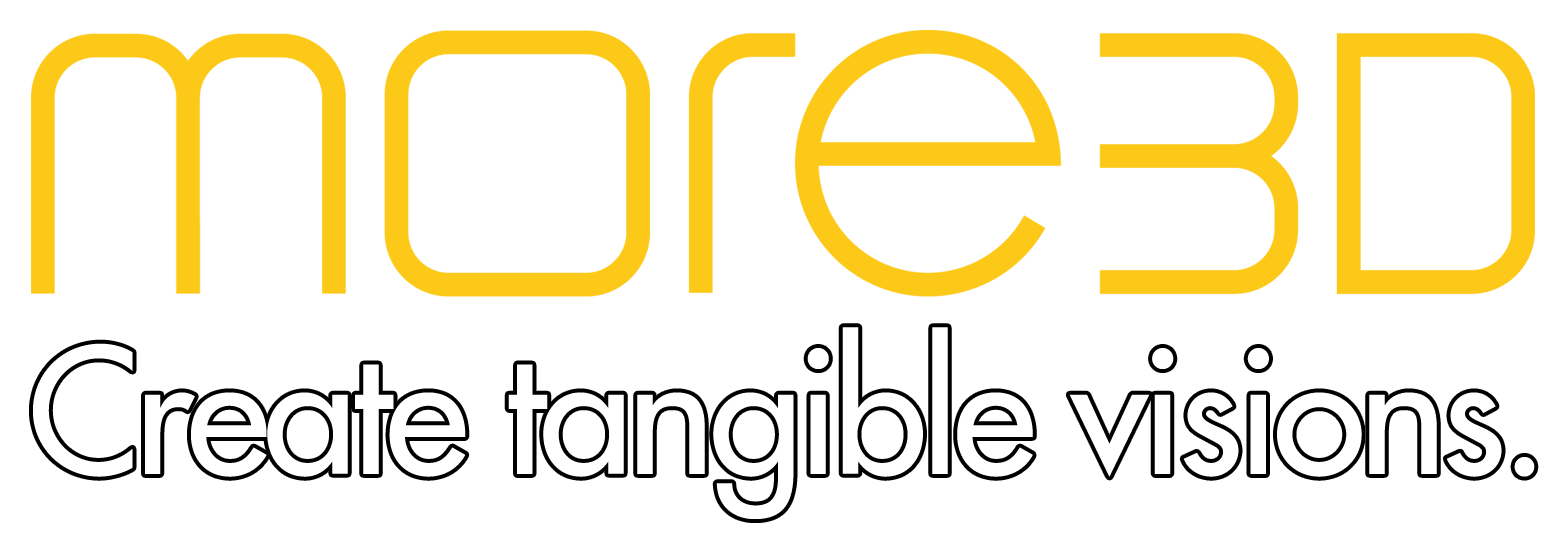Immerse as Group in VR with CAVE and DOME Systems
VR CAVE and VR DOME setups enable collaborative, stereoscopic 3D experiences in shared physical spaces. These solutions offer immersive, headset-free environments – ideal for design reviews, simulation, education, and public engagement.
Immerse in your project
VR DOME and CAVE setups
VR DOME
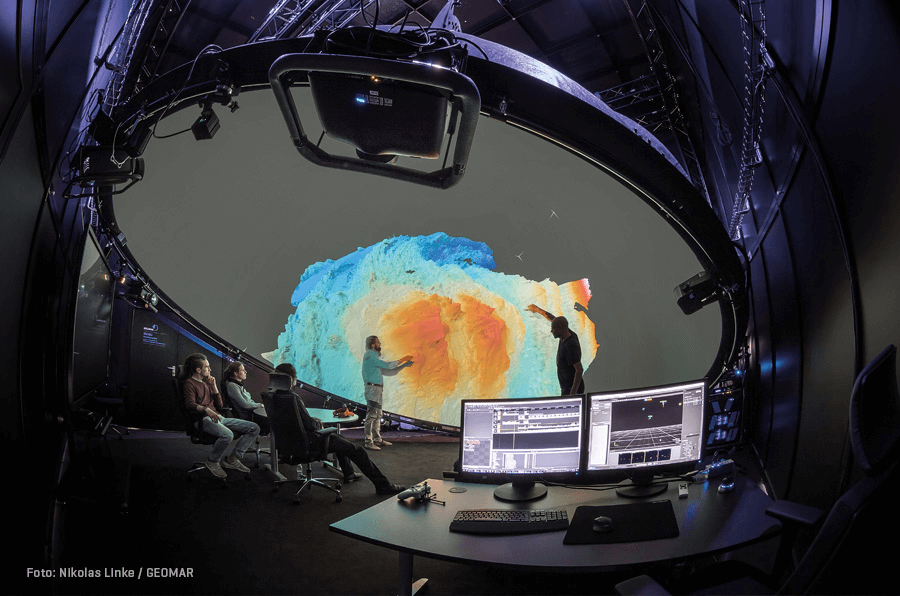
A hemispherical projection surface optimized for group viewing. Perfect for seated audiences in museums, universities, planetariums, or storytelling venues. Supports passive and semi-interactive experiences with seamless 360° visuals.
Corner CAVE
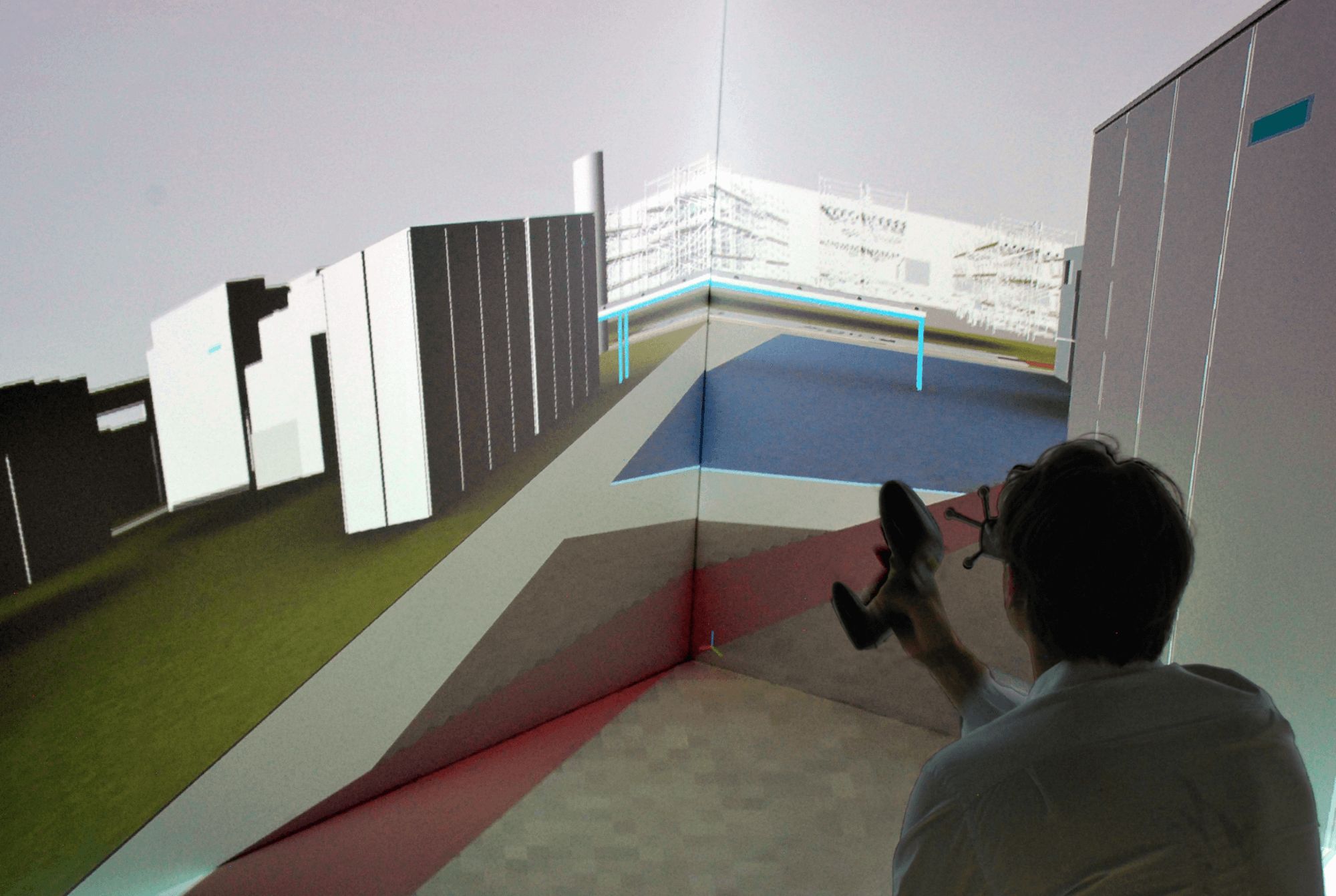
Combines front, floor, and one side wall for a three-sided environment that wraps around the user. Enhances spatial orientation and interactivity without requiring a full room build. An alternative is a L-Shape with a front wall and floor projection.
Full Cave
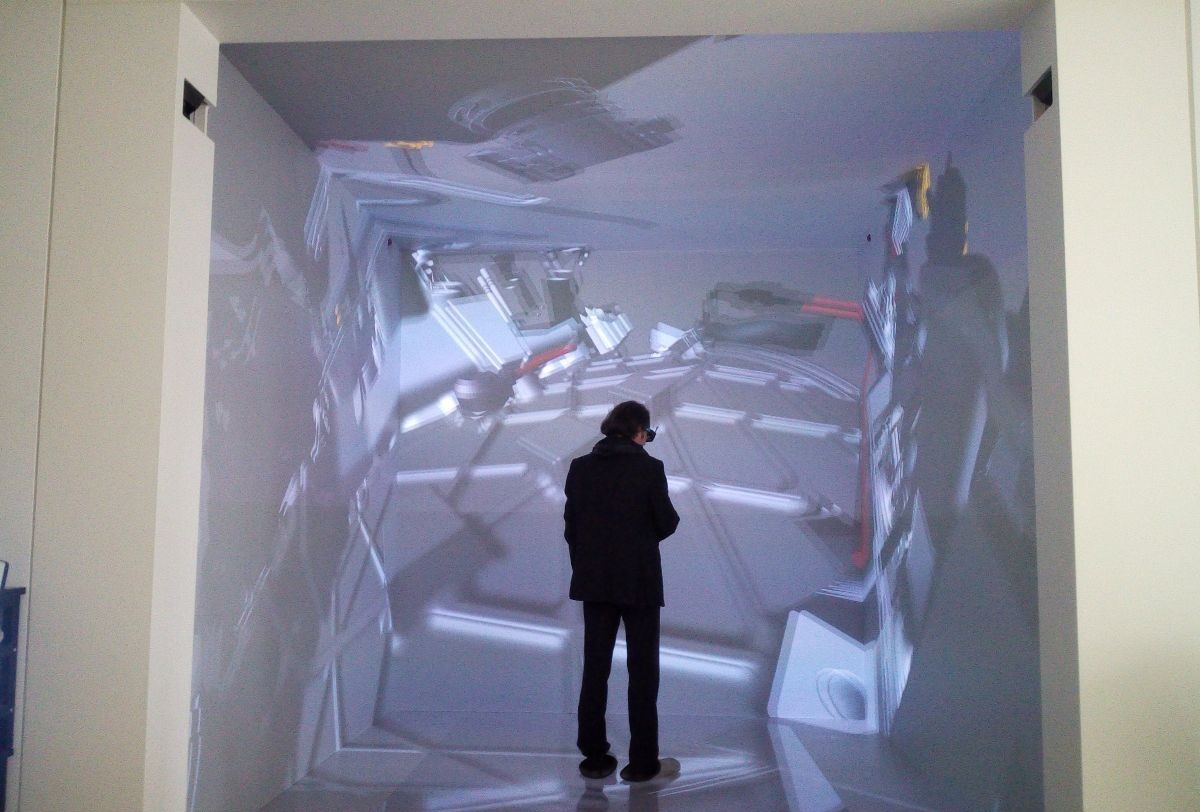
Four-sided projection (front, floor, and both side walls) that can be expanded to a fully enclosed system with ceiling and rear projection. Ideal for design reviews to high-end simulation - scalable immersion that grows with your needs.
Practical Use Cases
Why choose a VR CAVE or DOME?
Shared View
All users see the same scene in real time, enabling true group collaboration and discussion.
Natural Interaction
Users can speak, point, and move naturally, improving teamwork and understanding.
Increased Comfort
No headset pressure or disorientation, allowing longer, natural immersion for everyone.
High Visual Fidelity
Multi-projector systems offer sharper visuals than HMDs, with true 3D spatial perception.
Easy Remote Acces
Remote HMD users can join sessions live, enabling hybrid collaboration from anywhere.
Instructor-Friendly
Trainers can guide sessions clearly without wearing a HMD, ideal for demos and education.
Real Use Cases
VR CAVE and VR DOme
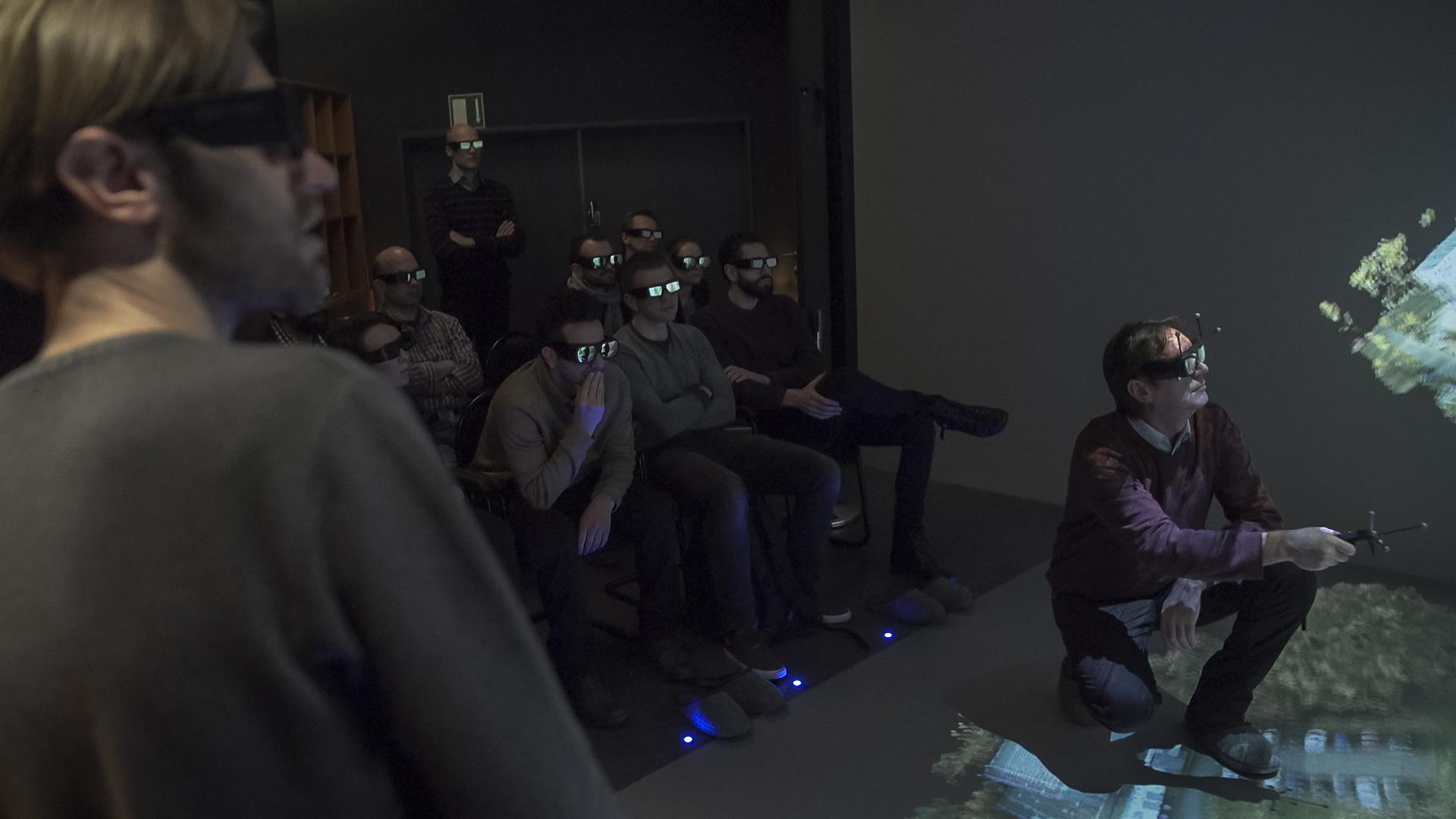
Engineering & Product Design
Review CAD models at 1:1 scale, explore tolerances, and validate designs collaboratively.
Architecture
& BIM
Walk through buildings before they’re built, explore materials, and resolve spatial conflicts.
Education & Training
Visualize complex data, concepts, or simulations in a way that’s intuitive and memorable.
Education & Research
Visualize complex data, concepts, or simulations in a way that’s intuitive and memorable.
Urban Planning & Infrastructure
Explore city layouts, traffic flows, and infrastructure projects at human scale.
Museums & Public Engagement
Build interactive exhibits and immersive stories that captivate diverse audiences.
Did you know?
With no HMD pressure, reduced latency, and a natural visual frame, CAVE and Dome environments dramatically lower motion sickness risk—ideal for sensitive users or long sessions. Find out more about motion sickness.
VR DOME and VR CAVE
Frequently asked Questions
Is Local & Remote Collaboration possible?
With moreViz, CAVE and Dome setups become hybrid-ready:
👥 On-site teams interact using laser pointers or tracked devices.
🌍 Remote users with HMDs (e.g., Quest, Vive, Varjo) join sessions in real time.
🛠 Team Review Mode allows shared or independent navigation across users.
What does a typical VR CAVE setup look like?
A standard entry-level configuration is a 3-sided CAVE with front, floor, and side projection:
Projectors: 3× WUXGA or 4K laser projectors (6,000–8,000 lumens)
Tracking system: ART or OptiTrack with 2–4 infrared cameras
Screens: Rear-projection surfaces, ~2×2.5 m per wall
VR PC: High-end workstation with NVIDIA RTX A6000 or similar
Software: moreViz for direct integration with CAD and simulation tools
Glasses: Active shutter glasses with IR sync
What does a realistic VR Dome setup look like?
A typical VR Dome for museums or public installations includes:
Projectors: 1–6 projectors depending on dome size and resolution
Calibration: Auto-alignment via VIOSO Anyblend or similar
Dome size: 4–8 m diameter, inflatable or fixed structure
Content: Real-time apps, pre-rendered shows, interactive exhibits
Audio: 5.1 or ambisonic sound system for full immersion
Control: Tablet, touchscreen, or laser pointer interface
How many users can interact at once in a VR CAVE and DOME?
This depends on the system size, tracking setup, and use case. Typically, 5 – 6 tracked users can actively interact within the CAVE or Dome, while additional participants can observe the experience without tracking.
What are the key advantages over HMDs?
No headset = no discomfort or motion sickness
Shared experience for multiple users in the same space
Clear communication with real gestures and eye contact
Higher image quality (no screen-door effect, sharper visuals)
Ideal for education, training, presentations, and team collaboration
Easier onboarding – no setup time or calibration per user
How much does a VR CAVE or VR DOme cost?
The total cost depends on system size, projection quality, tracking technology, and integration level. Typical setups range from €120,000 for compact CAVEs to over €500,000 for fully enclosed systems.
How It Works
From CAD to VR in Minutes
Bringing your designs into virtual reality has never been easier. With moreViz, you can view and interact with your existing 3D models – without modifying your source code or exporting files. Just 3 simple steps.
Step 1 - Install moreViz Software
Install moreViz, connect your VR hardware, and follow our step-by-step guide - or let us support you directly.
Step 2 - Launch Your Application
Start your OpenGL software - like Siemens NX or PTC Creo - and see your 3D model in full-scale VR, instantly.
Step 3 - Explore, Present, Decide
Walk through your design and run virtual reviews. We’re happy to help with setup and maintenance.
Choose your path
TEST your VR Experience
for free
Experience the power of real-time VR systems – in your own workflow environment.
- ▶ Test moreViz in your own setup
- ▶ No commitment, full feature access
- ▶ Immediate insight into your 3D data
- ▶ Speak with a VR expert
- ▶ See your use case in action
- ▶ Concept to integration: Ask anything
We'd Love To Hear From You
contact us
Find us Here
-
more3D GmbH & Co. KG
Mainzer Str. 276 53179 Bonn
Get In touch
-
Telephone: +49 221 677 87 97 0
Email: info@more3d.com
Working Hours
- Mon- Fri: 09:00 - 18:00
